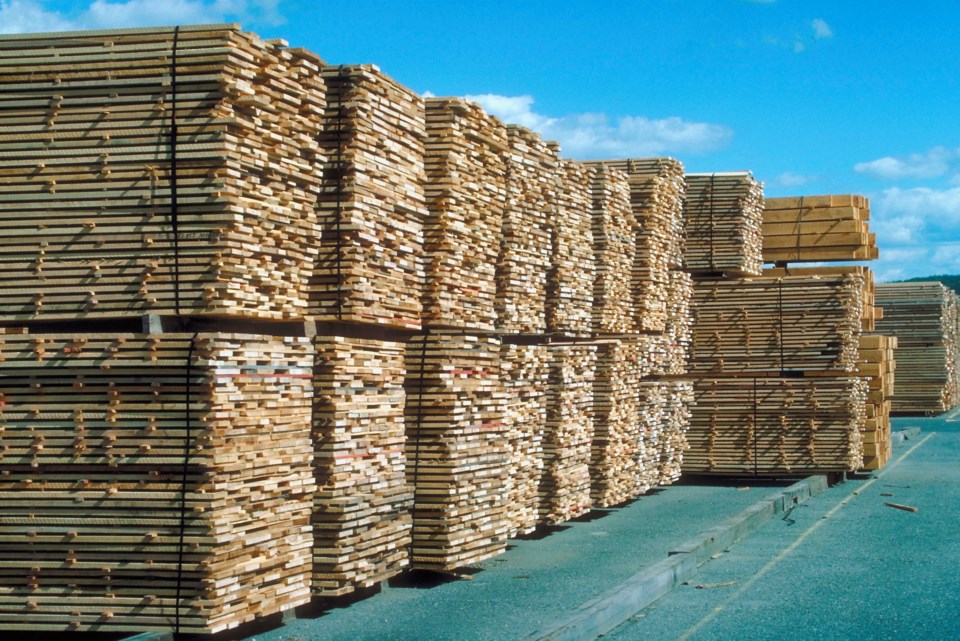The province's lumber producers will get a three-month deferral on stumpage to help the industry through the COVID-19 pandemic, B.C. forests minister Doug Donaldson said Thursday.
Stumpage is the fee operators pay the provincial government to harvest, buy or sell trees from Crown land.
The deferral is expected to add up to $80 million and is meant to help companies maintain liquidity but must they begin paying the amount back with interest once the term has ended.
Donaldson dismissed concern the move would be open to a challenge from the U.S. lumber industry. "It's not a loan, it's not a grant and interest will be applied to the amounts that's owing so from our perspective, it cannot be construed in any way as a subsidy," Donaldson said during a teleconference with provincial media.
To qualify, the recipient must hold one of a tree farm licence, replaceable forest licence or First Nations’ woodlands licence, be in good financial standing with the province and be following through on its reforesting obligations.
The outbreak put an end to an apparent upswing in the price of softwood lumber exported into the United States as the pace of housing starts weakened. After hovering around the $400 range per 1,000 board feet during November-February, the price stood at $319 as of Thursday, Donaldson said, adding 45 mills across the province have either curtailed or closed, affecting about 7,000 workers.
But he said many of them have been able to live up to public health guidelines regarding such matters as safe distancing. "So they can run and when market conditions improve, they can bounce back quickly and this stumpage deferral will help in that."
Opposition Liberal forests critic John Rustad said the move will help with short-term cash flow.
"But I question the need to charge interest and why didn't they do it for six months," he added. "Both Ontario and Alberta did a six-month stumpage deferral for the forest sector as well as the deferral without interest charge, and so it just doesn't make sense to me why B.C. wouldn't be doing the same thing."
Rustad also said the real reason the forest sector in B.C. is struggling is because measures taken by the governing NDP have made it the highest-cost producer in Canada.
"Stumpage, obviously, is one component of it but everything from the employer health tax to the increase in the carbon tax to additional regulations and reporting to the delays and challenges in getting permits approved...they all add in to the cost of doing business in British Columbia," he said.
As a result, he said lumber must sell for $380 to $420 per 1,000 board feet for producers to operate at a profit "and we're nowhere close to that."
A forest industry spokeswoman said the measure helps hard-hit companies in the short-term but what the industry needs is lower costs and for the market to turn around.
"Anything that can contribute to helping us with some liquidity to get through this period of time is helpful," said Susan Yurkovich, president and chief executive officer of the Council of Forest Industries. "We've just got more to do if we're going to be able to get B.C. back up and being able to compete."
She said the forest industry must be prepared to compete in global markets after the pandemic. "We want to be able to provide that wide range of products that the world wants," Yurkovich said.
"We have to do it in a way we can compete with other jurisdictions who want to take advantage of those same opportunities."
Canfor recorded an $88.8-million operating loss for the first quarter of this year. Conversely, West Fraser Timber earned $12 million for the same period.
- with files from The Canadian Press



